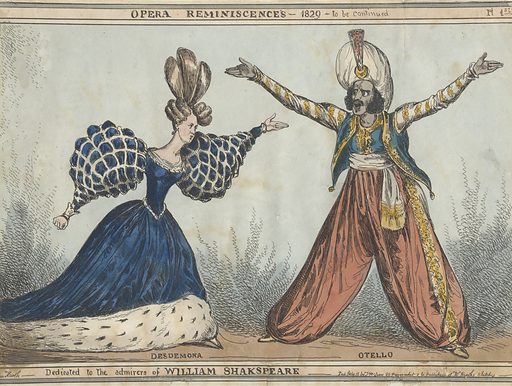In this second post in the series, we look at ways that honor and shame shape major works in Western literature. Today, we examine Shakespeare’s Othello.
Othello is a masterful exploration of how honor, shame, and reputation shape human behavior and relationships. In the play, these themes are not mere background elements; they are the very forces driving the tragedy forward. As characters wrestle with their identities and public perceptions, Othello reveals the destructive power of honor and shame when they become entangled with deception, jealousy, and social expectations.
Analyzing Othello through the lens of honor-shame dynamics provides insight into how easily one’s sense of self-worth can be manipulated and how fragile the concept of honor can be when it is tethered solely to reputation.
1. Othello’s Fragile Honor and Internalized Shame
Othello is introduced as a man of considerable honor— an accomplished general who has earned the respect of Venice. His reputation is his most valuable asset, a hard-won treasure that elevates him as a Moor in a predominantly white society. However, this honor is precarious, resting not only on his military achievements but also on his social acceptance. For Othello, honor is something he constantly feels the need to protect, and this anxiety makes him vulnerable to manipulation.
What makes Othello’s situation particularly tragic is how his honor is intertwined with internalized shame. Despite his status, Othello remains conscious of his outsider identity. His race and foreign background are frequently weaponized against him, most notably by Iago and Brabantio, Desdemona’s father. Brabantio’s accusation that Othello used “witchcraft” to win Desdemona’s love underscores the underlying shame Othello carries regarding how he is perceived by Venetian society.
Even though he outwardly projects confidence, Othello’s sense of honor is always shadowed by the fear that he does not truly belong. This latent shame makes him susceptible to Iago’s schemes, as it feeds into his insecurity about whether Desdemona’s love is genuine or simply a result of his reputation.
2. Iago’s Manipulation of Reputation and Honor
Iago, the play’s chief antagonist, masterfully exploits the honor-shame framework to orchestrate Othello’s downfall. Iago understands that for Othello, and indeed for most of the characters in the play, reputation is everything. By planting the seed of doubt regarding Desdemona’s fidelity, Iago corrupts Othello’s perception of his own honor, making him believe that his wife’s supposed infidelity is a stain that must be eradicated.
In a culture where honor is tied to public perception, a wife’s unfaithfulness is seen not just as a personal betrayal but as a public humiliation. Othello becomes consumed with the idea that his reputation is being tarnished, and this fear drives him to irrational jealousy.
Iago’s skill lies in his ability to manipulate not just Othello’s view of himself but also how others view each other. He understands that reputation is the currency by which honor is measured in Venetian society, and he uses this knowledge to engineer conflict.
For instance, Iago destroys Cassio’s reputation by getting him drunk and causing a brawl, which results in Cassio’s dismissal. Cassio’s lament that he has lost his “reputation, reputation, reputation!” captures how central public honor is to the characters’ sense of self-worth. In Iago’s hands, reputation becomes both a weapon and a means of control.
3. Desdemona and the Tragic Cost of False Honor
Desdemona represents a different kind of honor—one rooted not in public reputation but in personal integrity and loyalty. Her love for Othello is genuine, and she remains faithful even when her husband doubts her.
However, in the world of Othello, personal integrity is not enough to protect one from the destructive consequences of a reputation in shambles. Desdemona’s honor is besmirched not by her actions but by the lies and suspicions spread by Iago. Her death is tragic not only because it is unjust but because it demonstrates how fragile honor can be when it is determined solely by others’ perceptions.
Desdemona’s fate highlights a key aspect of the honor-shame dynamic: in a society where reputation is paramount, truth and integrity can be easily overridden by rumor and falsehood. The shame imposed on her by Othello’s misguided belief in her infidelity is a product of the broader societal expectation that a woman’s honor is bound to her chastity and her loyalty to her husband. The tragedy is deepened by the fact that Desdemona’s public shame is completely undeserved, yet it is powerful enough to lead to her demise.
4. The Collapse of Honor and the Triumph of Shame
As Othello progresses, the distinction between honor and shame blurs. Othello’s obsession with maintaining his honor ultimately leads him to commit the most dishonorable act—murdering the innocent Desdemona. His once noble reputation is destroyed by the very thing he sought to protect.
This inversion illustrates the play’s central irony: in a world where honor is defined externally, the more one strives to preserve it, the more vulnerable one becomes to shame and disgrace.
Othello’s final act of taking his own life is framed as an attempt to reclaim some semblance of lost honor. His last words express a desire to be remembered as one who “loved not wisely but too well” and who was “perplexed in the extreme.” Even in death, he clings to the idea of preserving his reputation, hoping that by narrating his own end, he can control how he is remembered.
But this final grasp at honor is futile. Othello’s tragedy lies in the realization that his identity has been hollowed out by his dependence on external validation. In the end, the honor he seeks cannot be restored because it was never fully under his control—it was always at the mercy of societal perceptions and the manipulations of those around him.
The Fragility of Honor and the Power of Shame
Othello serves as a cautionary tale about the dangers of basing one’s identity on honor as defined by reputation. The play shows how easily honor can be weaponized, distorted, and ultimately destroyed when it is tethered solely to public perception. In a world where shame is always lurking just beneath the surface, even the most honorable intentions can lead to catastrophic outcomes.
For Othello, Desdemona, and Cassio, reputation becomes a double-edged sword—necessary for their social standing but fragile and easily shattered.
Shakespeare’s tragedy reveals the destructive power of honor when it becomes disconnected from truth and internal integrity. It warns us that when honor and shame are externalized and governed by societal standards rather than moral virtue, they become tools for manipulation and destruction.
In Othello, the pursuit of honor is ultimately a descent into shame, demonstrating the inherent instability of a life built on the fragile foundation of reputation alone.














